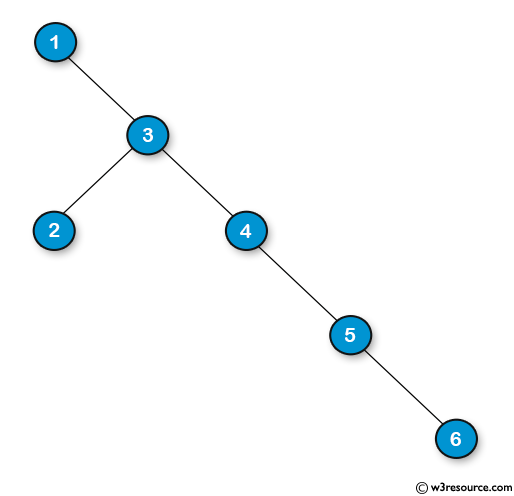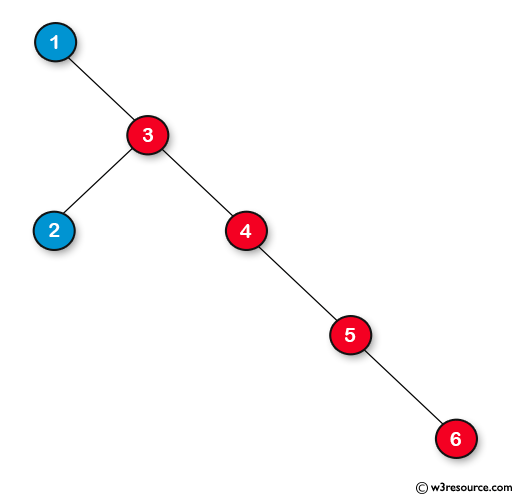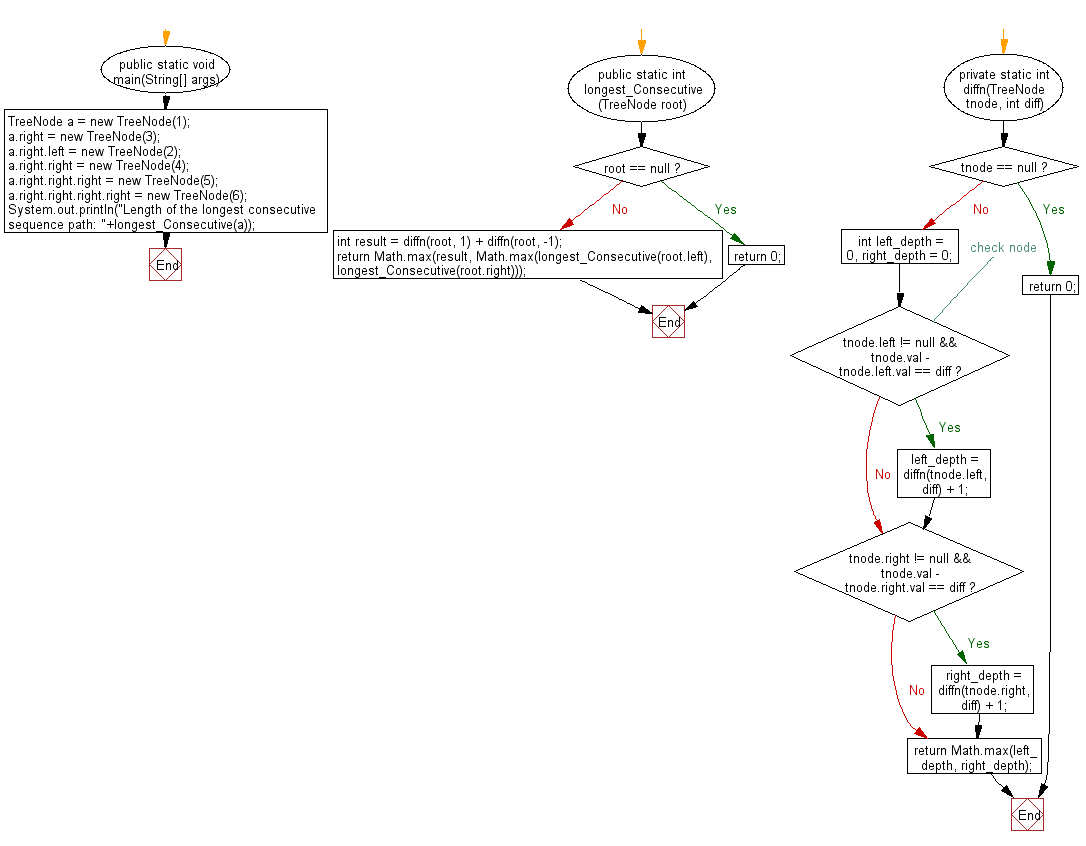Java: Find the length of the longest consecutive sequence path of a given binary tree
Longest Consecutive Path in Tree
Write a Java program to find the length of the longest consecutive sequence path in a given binary tree.
Note: The longest consecutive path need to be from parent to child.
Sample Binary tree:

Result:

Sample Solution:
Java Code:
// Importing necessary Java utilities
import java.util.*;
// TreeNode class definition
class TreeNode {
public int val;
public TreeNode left, right;
// TreeNode class constructor
public TreeNode(int val) {
this.val = val;
this.left = this.right = null;
}
}
// Main class Solution
public class Solution {
// Main method
public static void main(String[] args) {
// Creating the tree nodes and constructing the binary tree
TreeNode a = new TreeNode(1);
a.right = new TreeNode(3);
a.right.left = new TreeNode(2);
a.right.right = new TreeNode(4);
a.right.right.right = new TreeNode(5);
a.right.right.right.right = new TreeNode(6);
// Printing the length of the longest consecutive sequence path
System.out.println("Length of the longest consecutive sequence path: " + longest_Consecutive(a));
}
// Method to find the longest consecutive sequence path in a binary tree
public static int longest_Consecutive(TreeNode root) {
// Base case: if the root is null, return 0
if (root == null) {
return 0;
}
// Compute the result by recursively traversing the tree
int result = diffn(root, 1) + diffn(root, -1);
return Math.max(result, Math.max(longest_Consecutive(root.left), longest_Consecutive(root.right)));
}
// Helper method to compute the depth of the consecutive sequence path
private static int diffn(TreeNode tnode, int diff) {
// Base case: if the tree node is null, return 0
if (tnode == null) {
return 0;
}
// Initialize depths for left and right subtrees
int left_depth = 0, right_depth = 0;
// Check if there exists a consecutive sequence path in left and right subtrees
if (tnode.left != null && tnode.val - tnode.left.val == diff) {
left_depth = diffn(tnode.left, diff) + 1;
}
if (tnode.right != null && tnode.val - tnode.right.val == diff) {
right_depth = diffn(tnode.right, diff) + 1;
}
// Return the maximum depth among left and right consecutive sequence paths
return Math.max(left_depth, right_depth);
}
}
Sample Output:
Length of the longest consecutive sequence path: 4
Flowchart:
For more Practice: Solve these Related Problems:
- Write a Java program to find the longest consecutive sequence in a binary tree that can extend in both upward and downward directions.
- Write a Java program to determine the longest increasing path (not necessarily consecutive) in a binary tree.
- Write a Java program to find the longest path in a binary tree where node values increase consecutively, allowing gaps of exactly one.
- Write a Java program to compute the longest consecutive decreasing sequence in a binary tree from parent to child.
Go to:
PREV : Sum Digits to Single Digit.
NEXT : Check Isomorphic Strings.
Java Code Editor:
Contribute your code and comments through Disqus.
What is the difficulty level of this exercise?
Test your Programming skills with w3resource's quiz.

